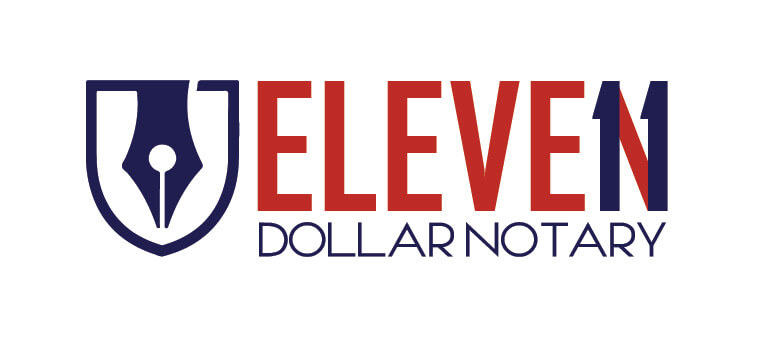Notarizing Foreign Documents for Apostille: Do’s and Don’ts

Why Notarization Matters Before Apostille
If you’re preparing to send official documents overseas—whether for marriage, education, adoption, or business purposes—chances are you’ll need an apostille. But before a document can be apostilled, it usually must be notarized properly. This step ensures the authenticity of the signature and lays the legal foundation for the apostille process. At Eleven Dollar Notary, we frequently assist San Diego and Mira Mesa residents with mobile notarization and apostille guidance.
Getting it right the first time saves you time, money, and the risk of rejection by foreign authorities. Below are the do’s and don’ts of notarizing foreign documents for apostille, based on California laws and best practices.
DO’s of Notarizing Foreign Documents for Apostille
1. DO Confirm the Document’s Eligibility for Notarization
Not all foreign documents are eligible for notarization. Confirm that the document is:
- Complete (no blank sections)
- In a language the signer understands
- Contains clear instructions or spaces for signatures If it’s in a foreign language, a translator or translated version may be required.
2. DO Use a California Commissioned Notary Public
Only California-commissioned notaries are allowed to notarize documents for apostille if the notarization is happening in San Diego or Mira Mesa. The California Secretary of State will only issue apostilles for documents notarized by a California notary.
3. DO Attach a Proper Notarial Certificate
Every notarization must include a notarial certificate (jurat or acknowledgment). If the document does not have one, your notary will provide it. Make sure this certificate is filled out accurately and completely.
4. DO Verify Identity with Valid ID
California notaries must verify your identity using an approved ID (like a driver’s license or passport). No valid ID = no notarization.
5. DO Ask About the Destination Country
The type of certification and requirements may differ based on the destination country. Some countries are part of the Hague Apostille Convention; others require a more involved authentication process. Your notary or apostille agent should help guide you accordingly.
6. DO Keep Copies of All Documents
Always keep copies of the notarized document and your ID. These records can be helpful in case the apostille authority requires additional proof.
DON’Ts of Notarizing Foreign Documents for Apostille
1. DON’T Notarize Incomplete or Unsigned Documents
Never notarize a document that:
- Is missing pages
- Has blank signature lines
- Requires corrections California law prohibits notarizing incomplete documents.
2. DON’T Use Expired Identification
You must provide current, valid photo ID. If your ID is expired, you may be asked to bring credible witnesses (in specific circumstances), but it’s not always allowed.
3. DON’T Assume Every Document Needs a Notary
Some documents are already government-issued and do not require notarization before apostille (e.g., birth certificates, marriage licenses). Apostilles for these are handled directly through the County Clerk or Department of State.
4. DON’T Forget to Match Names
The name on your ID must match the name on the document exactly. Mismatches may lead to rejections during the apostille process.
5. DON’T Rely on Notary Alone for Apostille Guidance
While a notary plays a crucial role, not all notaries are familiar with apostille requirements. That’s why working with a notary service like Eleven Dollar Notary that also understands the apostille process is essential.
Bonus Tips for Smooth Apostille Processing
- Always check apostille timelines and fees for California through the Secretary of State’s official site.
- Make sure your notary signs using blue or black ink, as required.
- Request mobile notary services if you’re unable to travel or have time-sensitive needs.
- Ask for same-day or expedited apostille services if you’re in a rush.
FAQs: Notarizing Foreign Documents for Apostille
Q1: Do I need both notarization and apostille for a document going overseas?
Yes. In most cases, foreign governments require notarized documents to be apostilled to verify their authenticity.
Q2: Can a document in a foreign language be notarized?
Yes, but the signer must understand it, and the notarial certificate must be in English. A translated copy may be required.
Q3: Can I get an apostille on a document without notarizing it?
Only certain public documents (like birth certificates) don’t require notarization. Most private documents must be notarized first.
Q4: How long does it take to get an apostille in California?
Standard processing takes 1-2 weeks, but expedited services are available through professional agencies.




